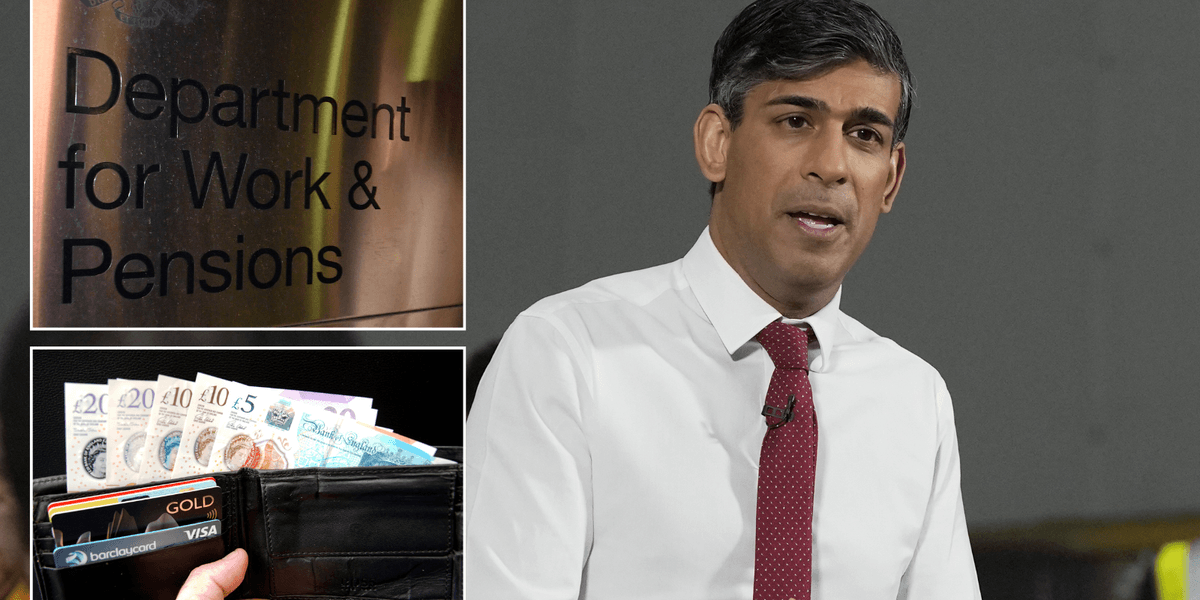Disabled people could receive vouchers instead of monthly payments, as Rishi Sunak prepares to unveil an overhaul of the benefits system.
Changes to the Personal Independence Payment (PIP) will be announced in the coming days, as the Government tries to tackle Britain’s “sick note culture” ahead of the local elections.
The recommended changes will reportedly target those with what the Government terms mild mental health conditions which should not stop Britons from working.
Apart from the introduction of vouchers, people could instead be given one-off grants for home adaptations or expensive equipment.
Other options include disabled people having to provide receipts for the purchase of aides or appliances, whilst a fourth alternative would be for those with mild conditions to receive more state-funded treatment as opposed to money.
The number of individuals claiming PIP due to anxiety and depression has risen in recent years, resulting in Sunak stating: “We need to do something about that.”
Speaking at a DHL distribution centre in Essex today, Sunak said that “something has gone wrong since the pandemic”, leading to more people not working because of long-term ill health.
“Of course, if you’re suffering from mental health, you should get the treatment and the support that you need,” Sunak said.
LATEST DEVELOPMENTS:
Sunak said “something has gone wrong since the pandemic” leading to more people not working because of long-term ill health
PA
“But we should also not say that you can’t do any work, especially when the research shows that work can be good for your wellbeing.”
A Government source familiar with the plans told The Telegraph: “These reforms are not about making the safety net less generous, but PIP is a blunt and increasingly unsustainable benefit.
“By the end of the decade, the bill will have more than doubled since Covid to over £30billion. So we need a proper conversation about whether the current approach is best supporting the rising caseload, particularly those with mental health conditions.
“We owe it to those who need the help the most to ensure the system is sustainable and working for them, including by providing extra support for those with the most severe conditions.”
The plans will be presented to the House of Commons tomorrow by the Work and Pensions Secretary Mel Stride.
PIP is a type of financial support available to people with disabilities. It is different from incapacity benefit, which is given to those too ill to work, or support that can be given to people disabled people via the Universal Credit system.
It was introduced in 2013 to replace Disability Living Allowance and currently more than 3.3 million people receive it.
The plans will be presented to the House of Commons tomorrow by the Work and Pensions Secretary Mel Stride
PA
The Government says spending on PIP is expected to grow by 52 per cent from 2023/24 to £32.8billion by 2027/28, causing the Government to propose a total overhaul of the system.
Earlier this month, Sunak called for an end to “sick note culture”, vowing to crack down on sickness benefits.
Giving a major speech on welfare reform, the Prime Minister called for the focus to shift to what work people might be able to do.
The PM said: “We should see it as a sign of progress that people can talk openly about mental health conditions in a way that only a few years ago would’ve been unthinkable, and I will never dismiss or downplay the illnesses people have.
“But just as it would be wrong to dismiss this growing trend, so it would be wrong merely to sit back and accept it because it’s too hard; or too controversial; or for fear of causing offence.
“Doing so would let down many of the people our welfare system was designed to help.”

